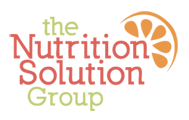The NSG partners with The Fertility Centers of New England
Posted by Jennifer Ackerman on Aug 21, 2012 in Blog | 0 comments
The Nutrition Solution Group is very excited to be joining the team at the Fertility Centers of New England. We will be working hand-in-hand with their fertility team to help clients reach their ideal body weight and nutrition goals to achieve healthy and successful pregnancies.
Being underweight or being obese can contribute to infertility. Women should aim to keep their Body Mass Index (BMI) between 20-24 to maximize fertility.
Being underweight or having very low body fat can make it more difficult to conceive. Women who are underweight may have very low estrogen levels or they may have irregular or absent periods making it harder for them to become pregnant.
Being obese can also make it more challenging to conceive. Assisted reproductive technology procedures like in vitro fertilization (IVF) are not as successful for obese women as they are for women who are at an ideal fertility weight. Furthermore, being overweight or obese during pregnancy can cause complications for you and your baby. Obesity increases risk of miscarriage and stillbirth. It also increases risk of high blood pressure, preeclampsia, as well as gestational diabetes. Finally, excess weight during pregnancy can lead to complications during labor and birth.
Getting to a healthy weight will not only increase the likelihood a woman will become pregnant but it will also increase her chances of having a healthy pregnancy.



